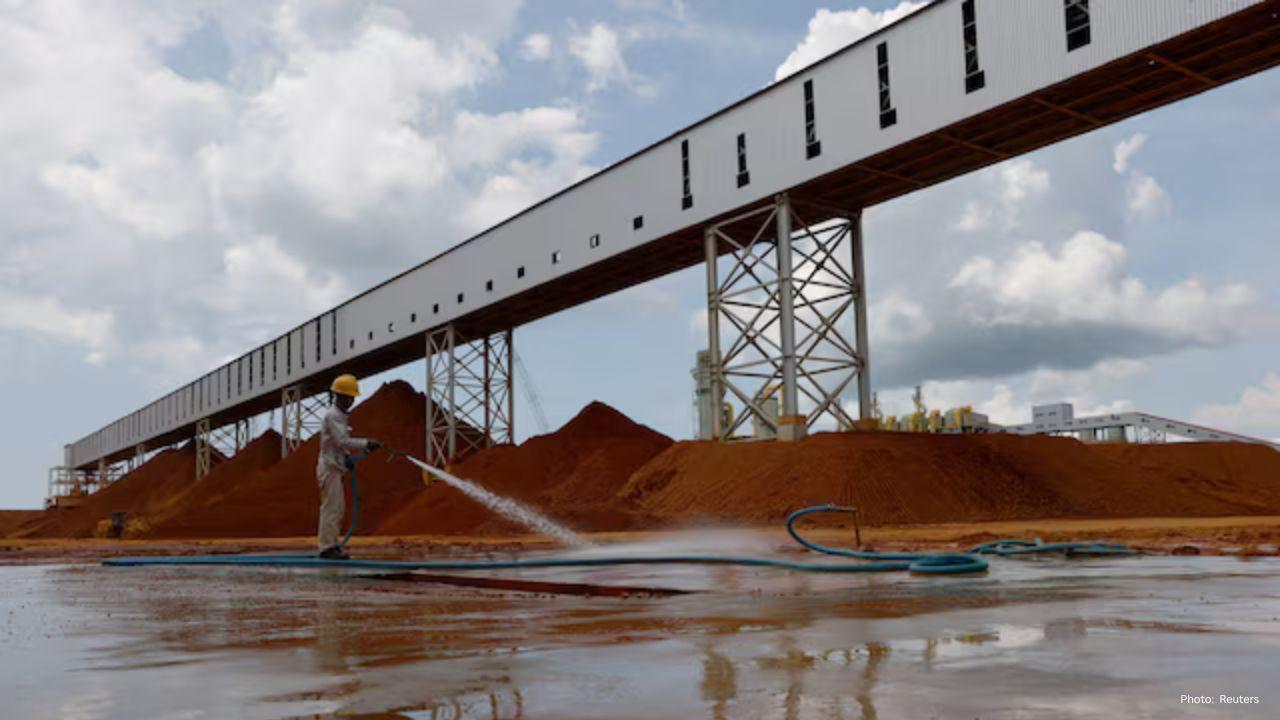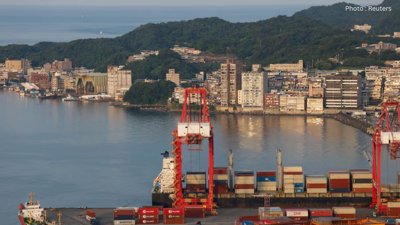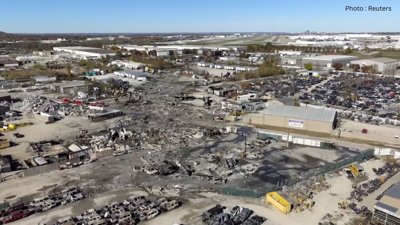
Post by : Sameer Saifi
The price of aluminium in the United States has reached the highest level ever seen. This rise is caused by high import tariffs and a shortage of aluminium in the global market. Aluminium is a very important metal used in buildings, power lines, cans, and many daily products. When its price increases, companies and consumers both feel the impact.
The U.S. government, under President Donald Trump, increased the tariff on aluminium imports to 50% in June. The goal of this move was to encourage more aluminium production inside the country. However, the effect has been that aluminium brought from other countries has become far more expensive. Many industries are now paying much more for the metal they need to keep making their products.
In the U.S. physical market, aluminium is usually sold at the London Metal Exchange price plus an extra premium for transport and tax costs. Since June, this premium has increased sharply. It has now reached a record of around 88 cents per pound, or nearly $1,942 per metric ton. When this premium is added to the base price of $2,850 per ton, the total cost becomes about $4,792 per ton. This is a heavy cost for factories and buyers.
The duty itself has also risen. At the current price, the tariff adds about $1,425 per ton. At the start of the year, the tariff was only around $560 per ton. This means companies must now pay more than double the previous amount.
One of the reasons for this price jump is the strong belief that these tariffs will continue for a long time. The U.S. had trade talks with Canada, but those talks were called off. Canada is extremely important for the U.S. aluminium supply. Last year, around 70% of U.S. aluminium imports came from Canada. With no new trade agreement, the cost of aluminium from Canada also remains high.
Another problem is that the amount of aluminium available in the world market is falling. China is the largest aluminium producer, but it has set a production cap of about 45 million tons. At the same time, aluminium production outside China has also reduced. This means that there is less aluminium available globally. When supply goes down and demand remains strong, prices naturally rise.
Analysts say that the world market may face an aluminium shortage of around 1.8 million tons this year. This shortage makes the situation even harder for the U.S., which depends heavily on imported metal. Because the supply is lower and the tariffs are higher, companies are struggling to get enough aluminium at a reasonable cost.
Industries that use aluminium every day, such as construction, automobile manufacturing, drink can production, and electrical companies, now have to pay more. This increase in cost may also affect the prices of goods sold to consumers. Everyday items that use aluminium, including foil, cans, and household products, may become more expensive.
This situation shows how trade decisions made by governments can affect markets, industries, and ordinary people. While the goal of raising tariffs was to help U.S. companies grow and produce more metal locally, the current shortage and high prices are creating challenges for businesses.
Many eyes are now on the U.S. government and global market leaders to see whether new trade talks or production changes will happen. Until then, aluminium is expected to remain costly, and industries will continue to face tough competition to secure supplies.
#trending #latest #Aluminium #USMarket #Tariffs #armustnews










Advances in Aerospace Technology and Commercial Aviation Recovery
Insights into breakthrough aerospace technologies and commercial aviation’s recovery amid 2025 chall

Defense Modernization and Strategic Spending Trends
Explore key trends in global defense modernization and strategic military spending shaping 2025 secu

Tens of Thousands Protest in Serbia on Anniversary of Deadly Roof Collapse
Tens of thousands in Novi Sad mark a year since a deadly station roof collapse that killed 16, prote

Canada PM Carney Apologizes to Trump Over Controversial Reagan Anti-Tariff Ad
Canadian PM Mark Carney apologized to President Trump over an Ontario anti-tariff ad quoting Reagan,

The ad that stirred a hornets nest, and made Canadian PM Carney say sorry to Trump
Canadian PM Mark Carney apologizes to US President Trump after a tariff-related ad causes diplomatic

Bengaluru-Mumbai Superfast Train Approved After 30-Year Wait
Railways approves new superfast train connecting Bengaluru and Mumbai, ending a 30-year demand, easi